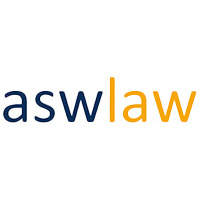ASW Law’s Neil Horner, Kim Willey and Hanno Tolhurst give their insights into Bermuda as an international business hub
Bermuda as a jurisdiction
Bermuda is an archipelago of islands situated in the North Atlantic Ocean, approximately 600 nautical miles from the east coast of the US. Bermuda is a British Overseas Territory that is self-governing with its own parliamentary government, dating from 1620, and constitution. The jurisdiction’s legal system is based on the common law of England and Wales and, accordingly, decisions of the English courts are highly persuasive in Bermuda. As a dependent territory of the UK, Bermuda’s highest appellate court is the Privy Council in London, whose decisions are binding in Bermuda. Bermuda is a highly reputable and sophisticated offshore financial centre with a stable political environment and effective regulation, particularly in the (re)insurance space grounded in the excellence of its intellectual capital and its highly regarded regulator, the Bermuda Monetary Authority.
The largest contributor to Bermuda’s gross domestic product (GDP) is international business. Bermuda is a global reinsurance hub, being the third-largest reinsurance market in the world. It is also a leading captive insurer market (the concept of the captive insurer was first invented in Bermuda in the 1960s) and the largest insurance-linked securities market globally. Bermuda is one of only two jurisdictions to have been awarded full equivalence under the Solvency II regime of the European Union (EU) applicable to (re)insurance companies. This means Bermuda registered commercial (re)insurers and insurance groups are able to compete on an equal footing with EU carriers when writing business in the EU. The National Association of Insurance Commissioners (NAIC) in the US has also granted Bermuda ‘qualified jurisdiction’ status, resulting in less onerous collateral requirements for Bermuda reinsurers operating in relevant US jurisdictions. The combination of Solvency II equivalence and NAIC recognition is a unique proposition. In addition to (re)insurance, a number of investment funds and investment businesses operate in Bermuda. Bermuda has also developed a regulatory framework to regulate and encourage the growth of digital asset business. Bermuda operates the largest offshore aircraft registry globally and a highly regarded ship registry. Other contributors to Bermuda’s GDP include tourism and the local economy. Bermuda’s economy is closely linked to the US, particularly given the Bermuda dollar is pegged 1:1 to the US dollar.
All of this means Bermuda is an attractive jurisdiction for mergers and acquisitions.
M&A in Bermuda
M&A in the Bermuda market tends to be dominated by the country’s main pillar of its economy, international business – that is M&A involving Bermuda-exempted companies. Generally, Bermuda prohibits local companies that intend to operate in the local economy in Bermuda from being majority owned and controlled by non-Bermudians. However, Bermuda permits exempted companies to carry on business from Bermuda, which means carrying on business internationally and in selected cases or otherwise with permission may include carrying on business with other exempted entities. Exempted companies are ‘exempted’ from the requirement imposed on local companies that at least 60% of the total voting rights in the company and at least 60% of the directors must be Bermudian, and therefore may be 100% foreign owned and controlled. The majority of companies incorporated in Bermuda operate as exempted companies. Similar restrictions apply to other entities such as limited partnerships and limited liability companies. There is also a smaller local M&A market for local companies that conduct business in Bermuda.
Given the (re)insurance industry’s pre-eminence within the international business sector, M&A in Bermuda often involves targets in the (re)insurance industry. There has been a wave of consolidation of reinsurers since the mid-2010s to early 2020s, including the acquisition by XL Group of Catlin, the subsequent sale of XL Group to AXA, American International Group’s purchase of Validus and Liberty Mutual’s acquisition of Ironshore. That consolidation has slowed in the last couple of years, as the number of targets have been reduced. However, there have still been some large transactions in the last year or so. For example, Apollo Global Management acquired Athene, Covéa purchased PartnerRe in a US$9bn acquisition and Brookfield Reinsurance proposes to buy Argo Group Holdings Ltd for US$1.1bn. A number of new, large commercial carriers have been established in Bermuda in recent times in the general insurance business sector, to take advantage of a hardening reinsurance market, such as Convex, Vantage and Conduit Re. The life insurance sector has also seen significant growth in the establishment of new (re)insurers. M&A in the (re)insurance industry may be driven in future years by the consolidation of these new entrants.
What’s market?
M&A transaction documents in the international business sector, such as sale and purchase agreements or merger agreements, do not have to be governed by Bermuda law. Indeed, given sellers and buyers of Bermuda companies are typically situated in other jurisdictions and used to their own jurisdiction’s laws and practices, such transaction documents often are governed by the laws of foreign jurisdictions, such as US or English law. As such, market practices in Bermuda can vary. For instance, a disclosure exercise and related representations and warranties under a US-style agreement are quite different from English law market practice.
For M&A involving local Bermuda companies, Bermuda law would typically govern the relevant M&A transaction documents but does not have to. As Bermuda’s legal system is based on English common law, local transactions tend to follow UK market practices, but not exclusively. We do find, however, that certain foreign law aspects can be problematic for local Bermuda companies. For example, where a US special purpose acquisition vehicle (SPAC) is the proposed purchaser, it can cause challenges for local Bermuda companies to continue as US stock exchange listed entities following closing of the transaction with the SPAC, given the heightened reporting and governance requirements as a US listed entity.
ASW Law Ltd
ASW Law Ltd is a leading, specialist, corporate and commercial law firm based in Bermuda. ASW is highly ranked in all major legal research directories. ASW’s lawyers all have experience in large onshore firms, and pride themselves on providing efficient, quality client service.
Authors

Neil Horner
Director, corporate

Kim Willey
Partner (consultant)

Hanno Tolhurst
Partner













